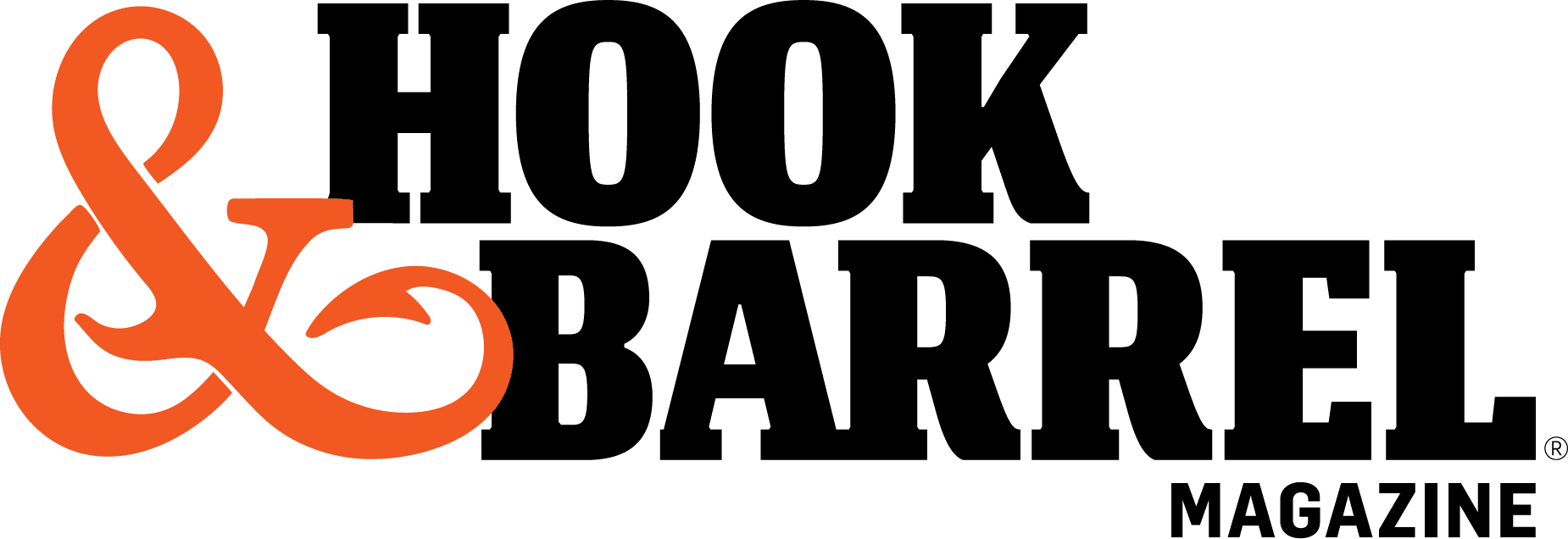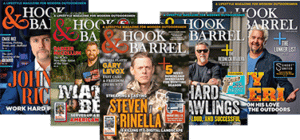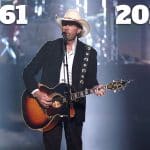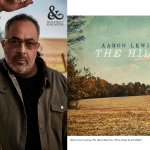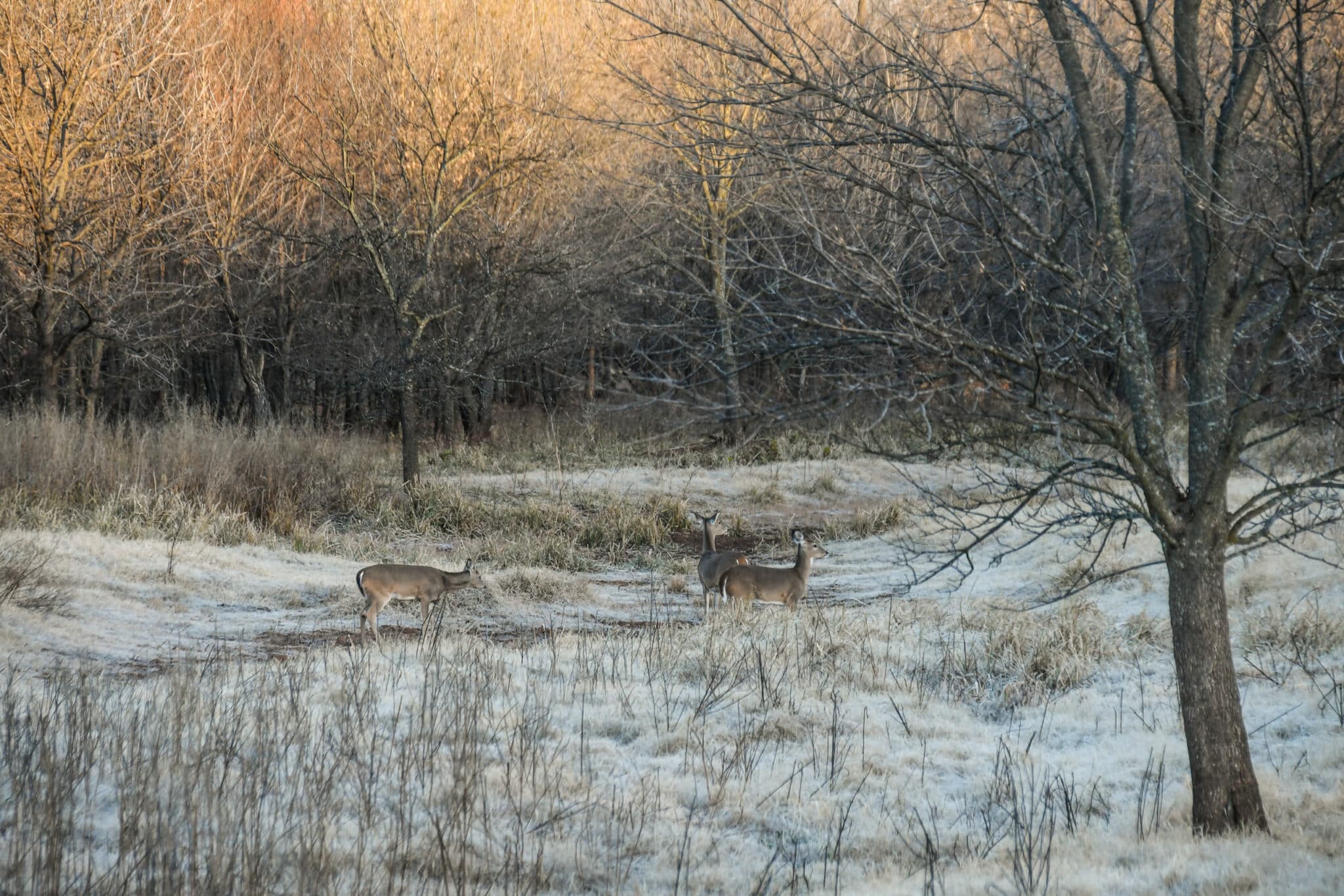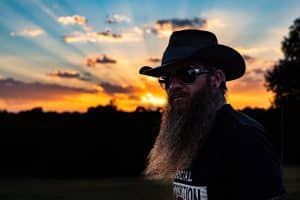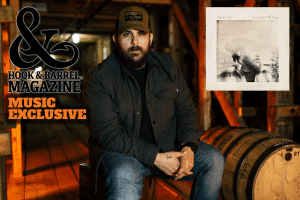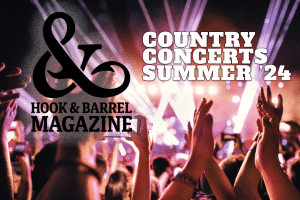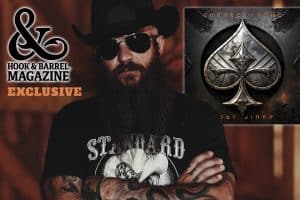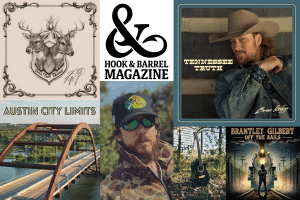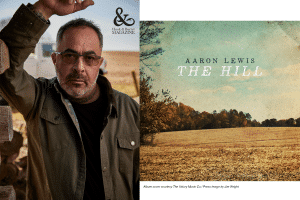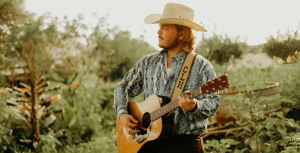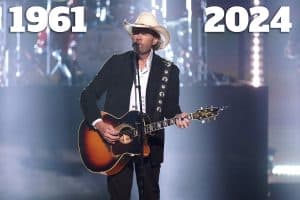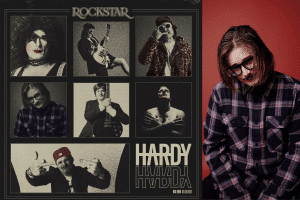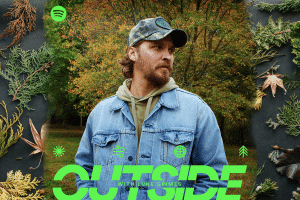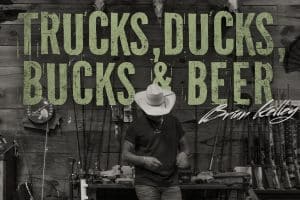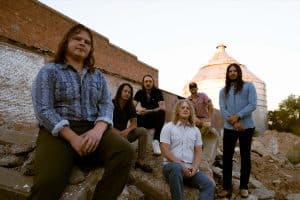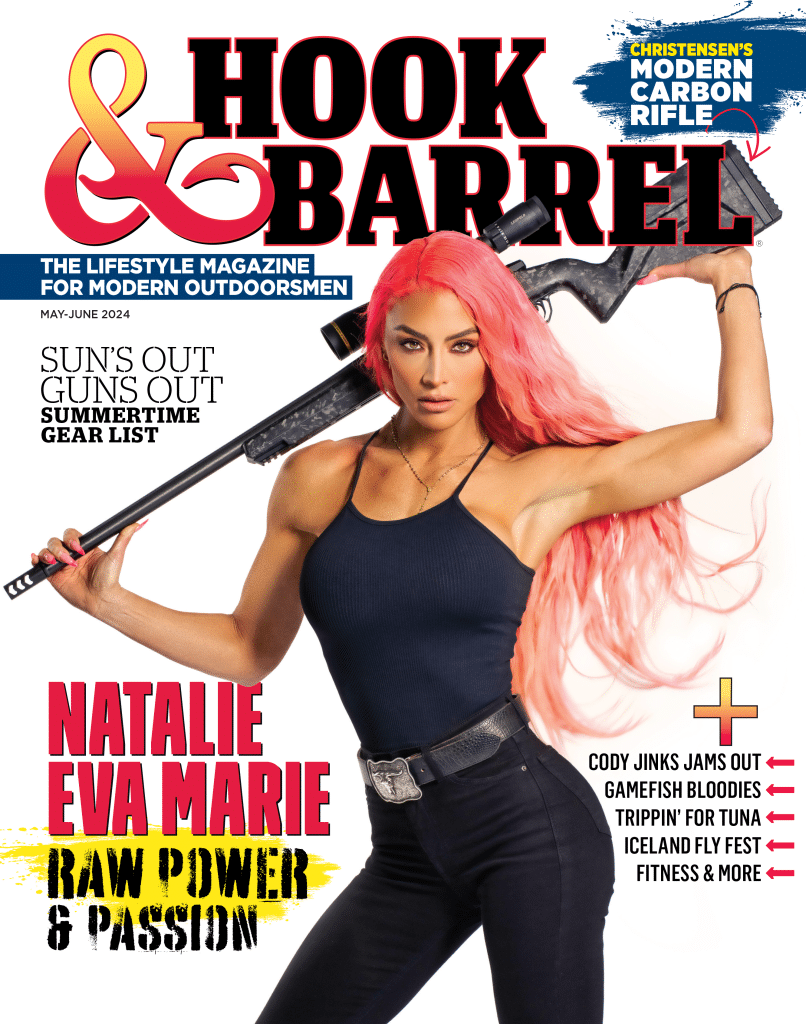- By Jim Hannaford
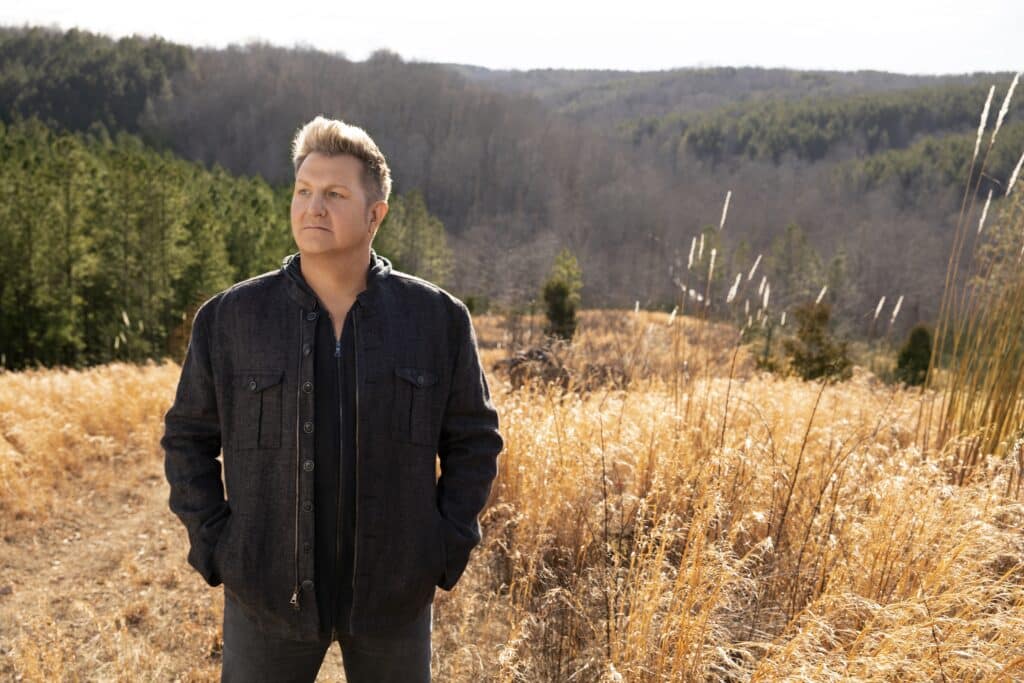
Rascal Flatts’ lead vocalist enjoys his change of pace.
If he’d taken French in high school, the world might know Rascal Flatts’ lead singer by another name. He felt like his real one, Gary Vernon, just didn’t pack the right punch. “I like my name, don’t get me wrong, but I just thought it wasn’t very cool, and I needed to come up with something cooler,” says the man who became famous as Gary LeVox.
He didn’t have to look far for inspiration. In the recording studio, there were pieces of tape on the mixing console that indicated what was on each track. His was marked “LE VOX,” which was studio shorthand for “lead vocals.” That seemed perfect, he thought. It was different, for sure, and would probably be easy for people to remember. But he didn’t realize its literal meaning until a few years later. “I had no clue,”Gary LeVox says. “If somebody in the studio would have said it means ‘the voice’ in French, I would have had to find something else. I wouldn’t have wanted to put that kind of pressure on me because that’s pretty cocky right there.”
More than 20 years later, he laughs at his own naïveté and is thankful he wasn’t dissuaded from the get-go. “That was total hillbilly luck, is what that was,” says Gary LeVox.
With his distinctively powerful high tenor, many might argue that he always deserved such a lofty sobriquet. But such a sense of arrogance or grandiosity just doesn’t seem to be his style. Despite his stature as one of the more prominent voices of modern country music over the last two decades, LeVox is at heart a modest Midwesterner with a laidback, humble nature. He sang in church as a kid in Ohio and grew to love a wide variety of music. He worked for a decade training the developmentally disabled for the workplace before trying his luck in Nashville in 1998 at the age of 27.
“It was a true leap of faith that God rewarded,” is how he puts it. He quickly got work as a backup vocalist and teamed up with two other talented musicians, bassist/pianist Jay DeMarcus (his second cousin) and guitarist Joe Don Rooney. They realized almost instantly they had a rare chemistry to go along with an impeccable vocal blend. They called themselves Rascal Flatts at the suggestion of an acquaintance that had played in a garage band by that name years earlier.
Their success came quickly as Gary LeVox and his two new musical cohorts ushered in the new millennium with a fresh pop-country sound that has gone on to influence many younger acts. This multiplatinum act has sold somewhere in the neighborhood of 25 million records—not to mention over 10 million concert tickets. Seventeen of their singles hit number one on the country charts, and many more endure as stirring and uplifting fan favorites.
HIS NEXT CHAPTER
Most everyone had something interrupted by the COVID pandemic. For LeVox and his longtime musical partners, it was a big Rascal Flatts farewell tour. The group announced at the beginning of 2020 that it was bringing its prosperous run to a close so they could all pursue other opportunities. But then the pandemic forced them to cancel. Next, Rooney decided he was quitting the group, bringing things to an even more sudden and unexpected end.
LeVox agrees that it was abrupt and even confusing to fans but says there’s not been any talk of getting back together, even to reschedule that final tour that was derailed. “We’re all enjoying doing something new for now,” he says, “putting some irons in some new fires.”
Right away, LeVox did something he’d wanted to do for years. His first solo outing was a faith-focused EP called One on One, which he promoted directly to radio stations that play Christian music. With so much uncertainty in the world, and in his career, Gary LeVox says the Christian-oriented project happened at just the right time. “I think I needed it more than anybody,” he says. He had always spoken freely about his faith, but this was taking it to another level by putting words into action.
He hasn’t turned his back on country music, however. His debut single under his own name is the swampy and upbeat “Get Down Like That,” which celebrates the joys of rural life. And Gary LeVox has spent the last few months out on the road. Yes, there are a couple of key people missing, but the rest of the band is the same. Along with their schedule of fairs and festivals this past summer, the group of seasoned, versatile musicians has been performing in smaller theaters for the first time in many years.
“It’s been so nice to bring it back into a more intimate setting,” he says. “I like seeing everybody’s faces and instead of doing full electric we’re doing what we call a ‘power acoustic’ set.” With more musical dynamics, he can deliver his lyrics more clearly. “You can see the impact of the songs on people’s faces,” he says. “I can look out from the stage and see people crying on certain songs and people dancing on others.”
And that’s a remarkable thing about Rascal Flatts—so many of their songs connect emotionally with listeners in different ways. “We’ve been fortunate enough to cut a bunch of great ones, that’s for sure,” he says. “That’s kind of the goal of an artist, to have songs that make an impact and are timeless. I do think some of those songs, like “Broken Road,” “What Hurts the Most,” “Skin,” and “I’m Moving On,” will stand the test of time. And I’m grateful for that.”

HIS LOVE OF THE OUTDOORS
Just like it did during the Rascal Flatts years, his tour bus tends to slow down this time of year, giving Gary LeVox more hours to indulge in the outdoors. Perhaps his biggest passion outside of music is hunting, and for that he doesn’t have to stray far from home. He and his wife, Tara, and their daughters, Brooklyn and Brittany, live on just over 2,000 acres of carefully managed property southwest of Nashville. He calls the place Fast Cars and Freedom Farms in honor of one of his chart-topping group’s early hits.
“I’m thankful every day for it,” he says of their gorgeous patch of woodlands. “On the first day I pulled in here, we went through the gate, and there were about 10 turkeys on the driveway, and six of them were long beards, and I went, ‘Well, OK, as soon as I can get cell service I’m calling my business manager to tell him I bought a farm.’”
To enhance the property for hunting even more, he oversees a regimen that includes prescribed burns, planting crops that attract deer and turkeys, and selecting cutting certain hardwoods to allow more sunlight onto the forest floor. As a result, he says, “It’s heavenly out here now.”
His love of hunting sprang directly from an early interest in archery. As a boy, he was intrigued by an old handmade recurve bow that his stepfather had. He tried it out and was hooked. He would practice for hours on end by aiming at paper plates he attached to hay bales. “I just fell in love with it,” he says. “I’d get home from soccer or baseball practice or whatever and I would just shoot and shoot and shoot and shoot and shoot.”

It wasn’t long before he was accompanying his family’s six beagles on rabbit hunts, shotgun in hand, and he’d shot his first deer by the age of 15. Despite firing his share of firearms over the years since, there’s something about the bow and arrow that always draws him back. “If I could, I’d hunt everything with a bow,” he says. “It’s more challenging because it’s more up close and personal.” He explains: “With whitetails, it’s doing everything right, you know, with wind direction and scent control, the way you access coming into a place, the way you exit or go into a stand. It’s really just putting some brainwork into it instead of just sitting out there and shooting one at 320 yards with a .300 Win Mag or something.”
Back in his school days, even if he had taken a foreign language class, he may not have been paying super-close attention. He loved the outdoors so much, he says, that he had already hit the woods before the first bell had rung, with his favorite camo one-piece as outerwear. “We would run trap lines in the morning and then do some deer hunting for an hour or two—I’d unzip in the parking lot and walk in with my school clothes on,” he says with a laugh. “I’d throw a backpack on, and I was ready to go.”
That routine continues in some ways. “I still love to trap,” he says, “and to have turkeys on your own place, you have to. Predators like coons, possums, bobcats, and coyotes can just destroy a turkey nest, so you’ve got to stay on your predator game.”
Though it may seem like he would never have to leave his own farm, except to perform for fans or record new music, he does enjoy going on hunting trips away from home. He loves hunting for bigger bucks in the Midwest, often with Mark Drury of Drury Outdoors, and he makes occasional excursions for elk in western states.
And, yes, he does realize he comes across as a man who feels incredibly fortunate to have a life filled with success on so many levels. As far as his musical legacy goes, he says: “It humbles me to think that a little old boy from Westerville, Ohio, has had such an impact on country music. It kind of blows my mind.”
Jim Shockey Bowhunting Tips
